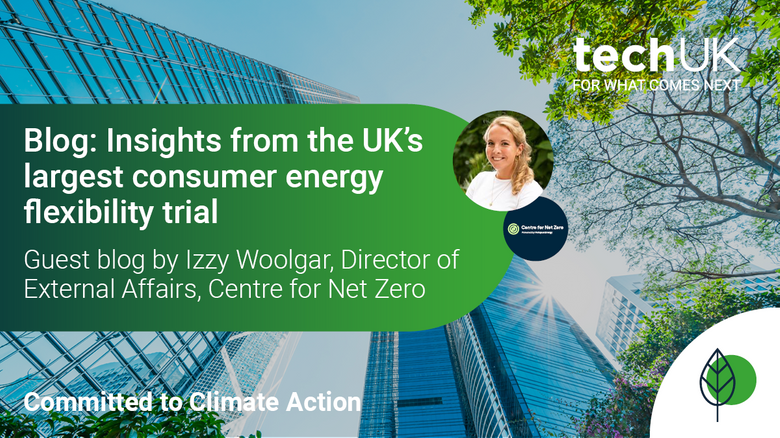Insights from the UK’s largest consumer energy flexibility trial (Guest blog by Centre for Net Zero)

The energy system is transforming. Electrification and a greater reliance on renewables means that we need to intelligently keep supply and demand in balance. The role of consumers in unlocking more flexible demand is key - and the UK is already beginning to unlock its potential.
This winter, the grid rolled out a defining innovation trial that reimagined its relationship with households. The Demand Flexibility Service (DFS) saw over one million households participate and support the grid during times of strain between November 2022 and March 2023. It was designed to test whether households could be relied upon to flex their energy use at certain times of the day, in exchange for payment.
What did we find out?
As a research unit, Centre for Net Zero leverages behavioural insights to help design a people-centred and tech-driven future energy system. We have recently analysed the behaviours of Octopus Energy’s DFS participants, as the majority of the one million households who participated. We considered the impact of price, communications, weather and household type on engagement with the trial.
Key findings included:
- Demand flexibility can have a significant impact on the grid at all times, but especially at periods of strain on the grid. The trial delivered system-level impacts: 2.92GWh of energy was shifted from peak periods, and 100% of the grid’s requirement when it was under strain was met by consumers.
- Households are receptive to changing their energy consumption and can make savings on bills. Altering price signals, notice periods and communication techniques influence the amount of flexibility we can expect from households.
- Weather doesn’t deter households from turning down their energy use. Opt-in rates on cold winter days were similar to mild and warm winter days. Greater per-household electricity reduction occurred on the coldest days, on average.
- Even with short notice, households are able to provide flexibility. Households can be relied on intraday (i.e within 6 hours notice of an event) if required. There is a trade-off between notice period and price. Customers with low carbon technologies find it easier to respond at shorter notice, but all households are capable of doing so.
- Household flexibility is largely manual at present - automation is key to scaling it up in the future. 75% of survey participants said they manually switched off appliances, rather than scheduling them to run at different times.
What’s next?
Whilst the grid has made swift progress on demand flexibility, we need to rapidly increase the number of households and energy suppliers who are participating in these services. This is crucial if we’re to stop relying on fossil fuels and reduce energy bills for everyone. Even households who aren’t directly participating in flexibility can benefit financially from a flexible energy system, because of the overall reduction in system cost.
The DFS will be rolled out again this winter. We’re calling for obligatory supplier participation, stronger engagement with the public on the benefits of flexibility, and regulations around minimum compensation for households to encourage sustained engagement.
In the near-term, policy-makers must urgently accelerate the rollout of consumer energy resources (solar, heat pumps, batteries) that can unlock greater flexibility. Further research is required to leverage intelligently automated domestic flexibility – which is crucial if we’re to move beyond manual flexibility and deliver system-level impacts. Check out Crowdflex and Heatflex UK for more information.
If you have any questions about this analysis or our ongoing work on domestic flexibility, please get in touch via our website.
techUK – Committed to Climate Action
By 2030, digital technology can cut global emissions by 15%. Cloud computing, 5G, AI and IoT have the potential to support dramatic reductions in carbon emissions in sectors such as transport, agriculture, and manufacturing. techUK is working to foster the right policy framework and leadership so we can all play our part. For more information on how techUK can support you, please visit our Climate Action Hub and click ‘contact us’.

Climate, Environment and Sustainability updates
Sign-up to get the latest updates and opportunities from our Climate, Environment and Sustainability programme.


